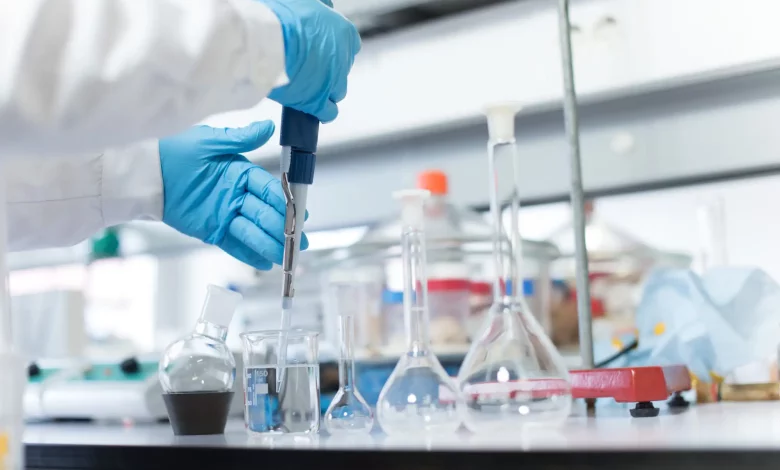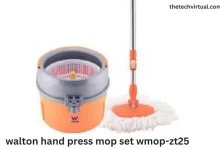How to Choose the Right Laboratory Equipment for Your Needs

Choosing the right laboratory equipment is vital when starting a new lab. There are many types of lab equipment out there to choose from, and you want to make sure you find the right one for your purposes.
Your equipment will dictate much of your research and many of your processes. A poorly designed lab can cause you to lose time, money, and quality work.
We’ll be going over how to choose the right laboratory equipment for your needs, and some gear is excellent for the new lab.
Read on!
Identify Your Specific Requirements
The first step in choosing lab tools that fits your needs is to figure out what those needs are. Ask yourself what you need the tools to do and if there are any specific features or specifications it should have.
Once you know what you need, you can look for a product that fits those needs. Find out about each product’s features, benefits, and any problems it might have.
You also need to use reliable GNSS simulators and ensure to follow safety rules. You have to pick a product that fits your wants and stays within your budget.
Assess Your Budget
When planning to purchase laboratory equipment, determine how much of a financial commitment you can make and stick to it. Look at what you can get for the amount you can spend and read up on reviews.
Compare products and prices to determine a reasonable value for money. Investigate whether any available lab equipment is on sale or as a bundle deal. Assess your need for new equipment and double-check with other colleagues to avoid wasting purchases.
Research Available Options
Do some study to find out what equipment will work best for your needs. Look for readings that are reliable, durable, affordable, and easy to use.
Make sure that you have tested them to make sure they work and are safe before you use them. Compare different types and ask about service agreements and warranties.
Find out who made the product and what other customers have said about it to make sure you’re getting a good one. Get advice from your colleagues and other experts in the field to make sure you’re buying laboratory equipment in good condition.
Evaluate Equipment Specifications
Many companies that sell equipment will give you a lot of information about their goods, such as the type of system, performance range, safety tests, and more. You should judge the specs by how well they meet the needs of the job.
When buying something, the quality of the item should be the most important thing. By taking the time to read and compare the specifications of different goods, you can buy the best quality equipment.
Also, since technology doesn’t last forever, you should think about getting a longer warranty when you buy it. If you want to get the best deal for your money, you need to look at the technical features of the equipment.
Consider Future Scalability and Flexibility
Depending on the study, the equipment may need to update, changed, or even replaced. Choosing a piece of equipment that you can change in the future will give a lab more freedom.
For instance, if you expand the technology or change it to serve other purposes, it will save money in the long run. Choose equipment with a smaller footprint to reduce the amount of room you need for setup and storage.
Think about how portable the equipment is, as it needs to be easy to move from electrical outlets and from lab to lab. Taking these things into account will help the laboratory in the long run.
Evaluate Service and Support
When looking at service and support when buying lab tools, you should always choose a company with a well-established and experienced technical support team that can help and guide customers.
Many reputable companies also have a customer service team that can answer any questions or concerns about the product before, during, and after the buy. Before you buy something, you should make sure the company has a return policy that fits your needs in case you’re not happy with it, or it breaks down in the future.
It’s important to make sure the company has an emergency maintenance service and good technical help. Look at customer reviews to make sure that people have had success with the product and with the customer service and support that came with it.
Seek Feedback and Recommendations
Reviews and comments from scientists who have used the equipment are useful resources that can help you decide whether to buy it. Scientists in the field should test the tools to see how well it works and how accurate it is.
It’s also important to read product reviews in trade magazines or on websites to learn more about how different types work. Talking to a local salesperson or representative can help you find goods that meet your needs.
For more specific information about what works and what doesn’t, talking to colleagues in other labs can be very helpful. With this method, you can get a full picture of the goods on the market and make sure you spend your money on the best laboratory equipment.
Evaluate Safety and Regulatory Compliance
You need to check the lab equipment to make sure it meets safety and government rules. Electronics must be UL-certified and constructed to meet national and foreign safety standards.
Protective clothes and safety gear like goggles, earplugs, and face shields must also be appropriate for the lab. Find out how to clean, store, and use the lab tools, as these are also standards that need to meet.
Make sure that any employees who use the lab tools have the training and know how to use them and what safety rules they need to follow.
Choose the Best Laboratory Equipment Today
With an ever-growing selection of laboratory equipment, finding the right equipment for your needs can sometimes take time. However, you can find the right laboratory equipment for success by setting clear goals, researching, and consulting experts.
Do your research and contact reliable suppliers to find quality laboratory equipment for your project!
Want more reads like this? Keep scrolling through our blog for more.






